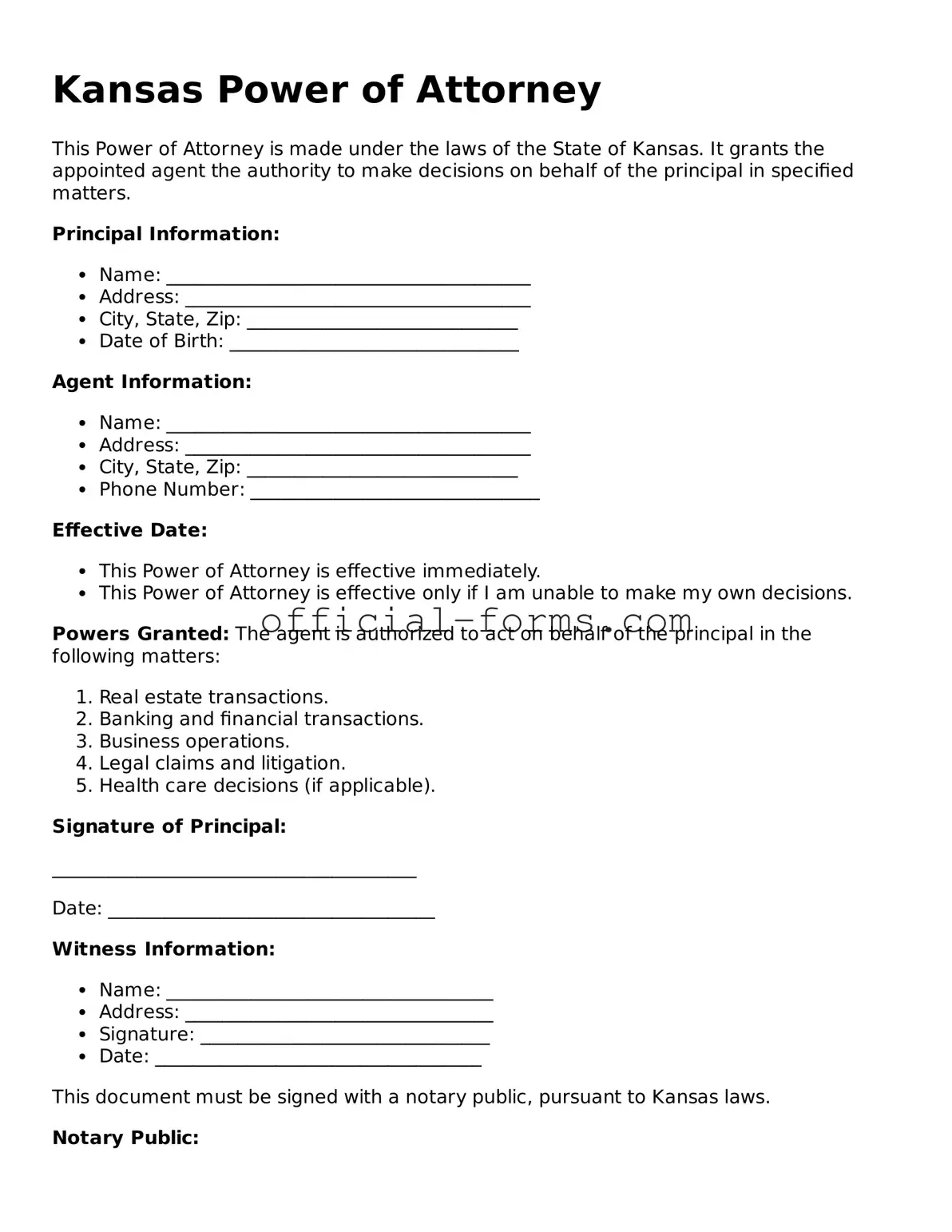Filling out the Kansas Power of Attorney form can be a straightforward process, but several common mistakes can lead to complications. One frequent error is failing to specify the powers granted to the agent. Without clear instructions, the agent may not have the authority to make decisions in critical situations. It is important to detail the specific powers being granted to avoid confusion later.
Another common mistake is neglecting to sign and date the form properly. Both the principal and the agent must sign the document for it to be valid. In some cases, individuals may forget to date their signatures, which can raise questions about the timing of the authority granted. Ensuring that all signatures are complete and dated is essential for the document's legality.
People often overlook the need for witnesses or notarization. Kansas law requires that the Power of Attorney be signed in the presence of a notary public or two witnesses. Failing to meet this requirement can render the document invalid. It is advisable to check the specific requirements for witnesses and notarization to ensure compliance.
Another mistake involves not updating the form when necessary. Life changes, such as marriage, divorce, or the death of the agent, may necessitate a revision of the Power of Attorney. Keeping the document current helps prevent potential disputes or issues regarding the authority of the agent.
Many individuals also make the mistake of not discussing the Power of Attorney with the appointed agent. Open communication can clarify expectations and responsibilities. If the agent is unaware of their role or the powers they possess, this can lead to misunderstandings during critical times.
Additionally, people may fail to provide copies of the Power of Attorney to relevant parties. It is important for financial institutions, healthcare providers, and other relevant entities to have access to the document. Providing copies ensures that the agent can act on behalf of the principal when needed.
Finally, some individuals mistakenly assume that a general Power of Attorney is sufficient for all situations. Specific situations may require special types of Power of Attorney, such as a medical or durable Power of Attorney. Understanding the different types available can help individuals choose the most appropriate form for their needs.

